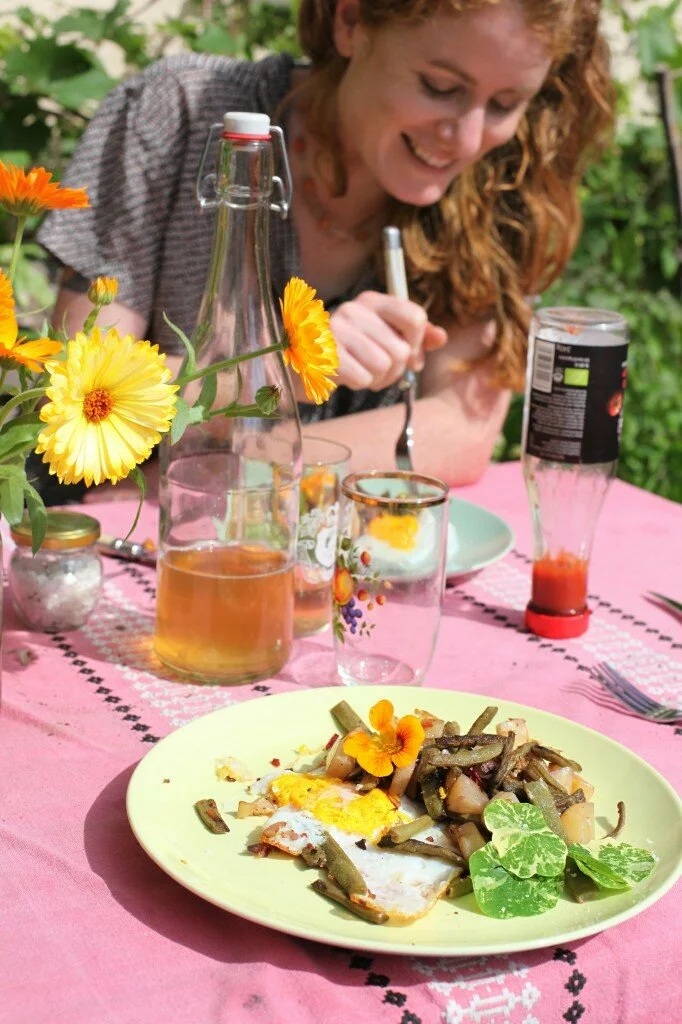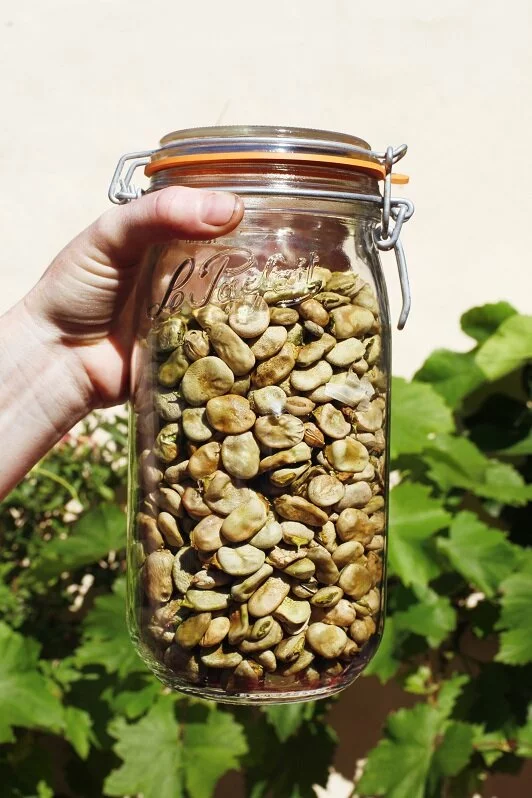a book review
Bowls of strawberries and heaps of gooseberries are a familiar sight in my kitchen at the moment. My courgettes and crimson flowered broad beans are loving the amazingly long-lasting sunny spell and even the runner beans are now snaking up their rustic wigwams vigorously. Very different to last summer when it was mainly mud that I brought in from garden to kitchen. Happily it seems an apt time to review a book called ‘Abundance.’
I’m already a big fan of Alys Fowler’s writing and broadcasting about growing your own foodie treats and making the most of our wild larder. Her lovely book ‘The Edible Garden’ (subtitled How to have your garden and eat it) is one of my favourite places to turn to for inspiration when I’m planning planting in the midst of winter. I’m very partial to planting calendula and cavolo nero together in the garden, the majestic dark green leaves looking splendid against the vivid orange flowers and I have the beautiful photos of calendula and cavolo nero in Alys’ own garden to thank for this idea.
In her recently published book, ‘Abundance’ she writes about how to make the most of gluts from the land to enable you to still eat well in the leaner winter months.Including classics such as Raspberry Jam and apple sauce, Alys also offers unusual ways to preserve your harvests, with some fascinating facts on how different cultures have developed their own techniques for pickling, fermenting and drying and interesting nutritional information.
Torshi Lift-Pickled turnips and Powidla (Polish Plum butter) may sound exotic but the recipes suggest they’re an easy way to both preserve and add an exotic glamour to home-grown produce. Gorgeous photos (and my own memories of pickling turnips with beetroot) reminds me that the turnip recipe is a glorious bright pink colour too. While Kale crisps look like a delicious way of persuading fussy young eaters to eat their greens – and maybe the cavolo nero that I’m so partial to could be used here?
Similarly to Diana Henry in ‘Salt Sugar Smoke’ Alys reminds us of the satisfying feeling that a store-cupboard full of preserves can give us:
“We store up a lot more than ripeness when we store away our produce; we store up a summer of hard, enjoyable work. If done well, we take all those vitamins and minerals, all that well-nourished soil and health and offer it up to those we love when the garden has all but gone to bed.”
All good reasons to freeze a few bags of the wild strawberries that are hanging down enticingly below my lavender (as Alys points out it’s almost impossible to collect enough tiny wild strawberries in one go to make jam, but you can freeze batches until you have enough) to make the lovely Wild Strawberry Jam. Not that I need another reason after reading Alys’ enticing instructions:
“This jam will not set well. Run with its sloppiness and spoon into Greek yoghurt or let it race across butter.”
As both a gardener (she trained at the Royal Horticultural Society, the New York Botanical Gardens and the Royal Botanic Gardens at Kew before working as Head Gardener, then presenter for BBC’s Gardeners’ World) and inspirational cook, Alys imparts some excellent gardening advice in ‘Abundance’ before dealing with harvesting, storing and preserving. It’s interesting to read just how important getting the soil right is to preserving its fruits. Alys points out that too much nitrogen (often favoured by large-scale farmers aiming at quick, bountiful harvests for the supermarkets) can affect the plant’s metabolic rate and although this aids fast growth, it also ages the fruit faster:
“Conversely, an abundance of potash (potassium) in the soil has a positive effect on storage.”
So when we add potassium-rich comfrey, seaweed, green manures and animal manures to our plots, it’s nice to know we’re already benefitting the winter larder.
I like the sound of the health benefits for our winter stomachs too. In the ‘On Fermenting’ chapter, Alys describes delicious ways for using the sour, salty taste of pickles made this way and explains that fermented foods, “..are hugely important to our health, containing a unique mixture of good bacteria and vitamins.” Reminding me of some of the lovely sauerkraut type fermented cabbage recipe that I want to try in the lovely Dale Cottage Farm Diaries.
A good reason too to try Kimchi, an ancient pickle thought to originate in China. A way of preserving different winter vegetables using salt, Alys refers to a Korean study which has found that the good bacteria in kimchi can kill off bad bacteria such as salmonella. As I line up my kilner jars and admire the flowers on my pickling cucumbers, I like to think this means that pickling truly is good for you.
Abundance by Alys Fowler (Kyle Books, £16.99) Photography: Simon Wheeler.



